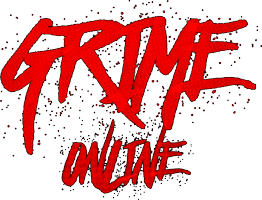Advertisement
Supported by
He was indicted with about two dozen others, including some accused of murder and attempted armed robbery. The county’s district attorney has vowed to crack down on street gangs.
Send any friend a story
As a subscriber, you have 10 gift articles to give each month. Anyone can read what you share.
ATLANTA — The rap star Young Thug, one of the most influential artists to emerge from Atlanta’s famously fertile hip-hop scene, was arrested on Monday on suspicion of gang involvement and conspiracy to violate the Georgia criminal racketeering law. The rapper, whose real name is Jeffery Williams, was charged in a sweeping grand jury indictment that identified him and 27 other people as members of the same criminal street gang and charged some of them with violent crimes including murder and attempted armed robbery.
Mr. Williams has reshaped the rap world throughout his decade-plus career and inspired a host of emulators as three of his albums reached No. 1 on the Billboard chart and he collaborated with stars across the rap world and beyond. His arrest comes as District Attorney Fani Willis of Fulton County — a Democrat best known for investigating whether former President Donald J. Trump and his allies committed election fraud in Georgia — has vowed to crack down on street gangs in Atlanta, a city reeling from violent crime.
The arrest of Mr. Williams at a house in the well-heeled Buckhead neighborhood was confirmed on Monday night by Jeff DiSantis, a spokesman for Ms. Willis’s office, who said that several other people named in the indictment were also arrested.
The indictment alleges that Mr. Williams is a founder of Young Slime Life, a criminal street gang that began in Atlanta in 2012 and is affiliated with the national Bloods gang. Mr. Williams’s successful record label has been variously called YSL Records or Young Stoner Life Records; the label refers to its artists as part of the “Slime Family,” and a compilation album called “Slime Language 2” hit No. 1 on the charts in April 2021.
All 28 people named in the indictment were charged with conspiracy to violate the state Racketeer Influenced and Corrupt Organizations Act, or RICO, which is closely modeled on the federal law that has most famously been used against organized crime members. In 2014, Ms. Willis helped lead a controversial racketeering prosecution in which Atlanta public-school teachers were accused of cheating on standardized tests. She has also raised the possibility that Mr. Trump and some of his allies may have violated state RICO law in their alleged efforts to subvert the results of the 2020 presidential election.
Ms. Willis and other Georgia officials have raised alarms recently about gangs in the Atlanta region, where they have historically not been as prevalent, or as culturally rooted, as they are in places like greater Los Angeles. In a recent public meeting, Ms. Willis called gangs “the No. 1 threat against public safety” in Atlanta. At a news conference on Tuesday, she said gangs “are committing conservatively 75 to 80 percent of all the violent crime that we’re seeing within our community. And so they have to be booted out of our community.”
Ms. Willis said that Atlanta should “absolutely” expect more RICO indictments against other street gangs.
The indictment comes at a time when other big-city lawmakers and law enforcement officials are worried about hip-hop artists and their ties to criminal activity as the nation struggles to contain a nationwide spike in violent crime. Those concerns, and the pushback from civil libertarians and hip-hop fans, echo the debates of the late 1980s and early 1990s, when explicitly violent lyrics in the emerging gangster rap genre stirred controversy.
“We go through cycles, moral panics, if it’s the Tipper Gore era, in the ’90s, or now,” said Erik Nielson, a professor of liberal arts at the University of Richmond who studies hip-hop culture. “It’s a convenient scapegoat for authorities who are not getting the job done.”
Monday’s 88-page indictment, however, alleges that the gang was involved in a wide variety of illegal activities, including witness intimidation, murder, attempted murder, carjacking, robbery, theft and drug dealing. A number of people are named as victims of shootings or attempted shootings, including Dwayne Carter, the New Orleans hip-hop star who raps under the name Lil Wayne, and whose tour bus was shot at by a YSL member named Jimmy Winfrey in April 2015, according to the indictment.
Mr. Williams is named as having committed a number of illegal acts for which he is not charged, but which are described as “overt acts” in furtherance of the group’s criminal conspiracy. Among those allegations are an instance of threatening to kill a man at a mall and possession of methamphetamine with the intent to distribute it. Mr. Williams is also alleged to have rented a silver Infiniti Q50 sedan that was used in the commission of the murder of a rival gang leader, Donovan Thomas Jr., in January 2015.
Five men are charged with murder in connection with Mr. Thomas’s death. One of them, Deamonte Kendrick, is identified as Yak Gotti, a rapper on the YSL label.
Previous court documents say that Mr. Thomas’s compatriots blamed YSL for his death. On Tuesday, Ms. Willis said that his murder “created violence like Atlanta has never seen.” She also said she promised Mr. Thomas’s mother she would do everything she could “to make sure that her son had justice.”
Brian Steel, a lawyer for Mr. Williams, said that YSL was not a street gang. “Mr. Williams came from an incredibly horrible upbringing, and he has conducted himself throughout his life in a way that is just to marvel at,” Mr. Steel said. “He’s committed no crime whatsoever.”
Also charged with one count of racketeering is Sergio Kitchens, the well-known rapper who performs as Gunna. The indictment alleges he committed felonies including receiving stolen property and drug possession with intent to distribute.
In April 2021, Ms. Willis charged a dozen people who were said to be members of gangs that are locked in a bloody rivalry with YSL, including Rayshawn Bennett, another famous rap artist whose stage name is YFN Lucci. Mr. Bennett was indicted on, among other things, a felony murder charge in connection with a drive-by shooting. Monday’s indictment charges three people accused of being YSL members with attempted murder in an attack on Mr. Bennett, who was stabbed in jail in February.
“I am not impressed with the fact that you are a rapper — that’s not going to keep you from being indicted by default,” Ms. Willis said at a news conference in April, in which she criticized a judge for granting bond to Christian Eppinger, who raps under the name Big Bhris, is reported to be a Young Slime Life member and is accused of shooting an Atlanta police officer six times in February. “If they committed acts of violence, and if we have enough evidence to substantiate that, you’re going to see indictments,” Ms. Willis said.
Mr. Eppinger is facing 15 new charges under Monday’s indictment, including attempted murder.
The new charging document and other court records show that Fulton County prosecutors have been paying close attention to the music and social media output of Atlanta-area rappers and their associates for some time, using the content to bolster their criminal cases against a number of suspects from both rival gang groups.
The indictment claims that after the killing of Mr. Thomas, the rival gang leader, Mr. Williams appeared in a video in which he stated that some people “get killed bro, from me and YSL,” while using an expletive. In another video in 2018, he is alleged to have stated, “I never killed anybody, but I got something to do with that body.”
Using rap lyrics against artists is a tactic prosecutors have used for decades, even as once-controversial gangster rappers have been absorbed into the American mainstream, and as many critics and fans have argued that rap artists should be given as much freedom to explore violence in their art as Quentin Tarantino or Shakespeare.
The fresh crackdowns on rappers and their music have taken different forms in different cities.
In New York this year, Mayor Eric Adams suggested that social media companies should ban some music videos by artists in the graphic drill rap genre after two aspiring rappers were killed in Brooklyn. “I mean, we pulled Trump off Twitter because of what he was spewing, yet we are allowing music — displaying of guns, violence — we’re allowing it to stay on these sites,” Mr. Adams said.
In Chicago, a federal indictment unsealed in October charged five people said to be members of the O-Block street gang with racketeering, accusing them of the 2020 murder of Carlton Weekly, a rapper who went by the name FBG Duck; the indictment said the men increased the gang’s status “with the use of social media platforms and music.” A federal prosecutor said that online posts and music videos were being used regularly by Chicago criminals to boast of acts of violence and issue retaliatory threats.
Though some of Young Thug’s lyrics trade in violence, his success is rooted in a broader musical palette, with delivery that can feel playful, psychedelic and occasionally bizarre. He has a nose for mainstream musical success, including a guest vocal spot on “Havana,” the Camila Cabello song that topped Billboard’s Hot 100 singles chart in January 2018.
He won a song of the year Grammy in February 2019 as a co-writer of Childish Gambino’s “This Is America,” a widely praised work of jittery social commentary.
Atlanta, his hometown, has wrestled with an alarming spike in violence in recent months. The latest figures from the Atlanta Police Department show 60 percent more homicides through April 23 than in the comparable period last year. Unease over that rise has prompted the Republican-led state legislature, and the Republican governor, Brian Kemp, to enact a flurry of anti-crime bills. Violent crime has also become the most pressing political challenge for Atlanta’s new Democratic mayor, Andre Dickens, and Ms. Willis, who became the first Black female district attorney of Fulton County in January 2021.
Ms. Willis’s aggressive posture against gangs puts her at odds with more liberal Democratic prosecutors. Both George Gascón, the Los Angeles County district attorney, and Chesa Boudin, the San Francisco prosecutor, have stopped requesting longer sentences for people suspected of gang activity. Mr. Boudin has argued that such sentences “worsen racial disparities” and contribute to mass incarceration.
Dean Dabney, a professor of criminal justice at Georgia State University, was skeptical about Ms. Willis’s contention that gangs had become the No. 1 public safety threat. “I’ve seen no convincing systematic evidence that substantiates that,” he said, adding that gun violence, more generally, was certainly a big problem.
Monday’s indictment notes that in December 2020, Mr. Williams appeared in a video for a song full of violent language as well as boasts about the good life and of legal success. Its title: “Take It to Trial.”
Advertisement


